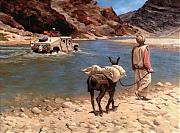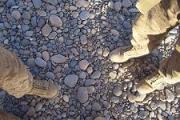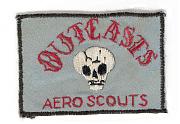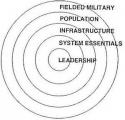Does History provide any models suggesting that the unhappy war in Iraq might have a happy ending? Journalists and military experts are pointing hopefully to the U.S. war in the Philippines at the turn of the 20th century as an example of how Americans can fight a tough guerrilla insurgency and eventually win.
Max Boot, an Op-Ed columnist for the Los Angeles Times, has written that the U.S. victory in the Philippines provides a "useful reminder" that Americans can prevail in Iraq. Similar arguments have been made by Robert Kaplan in the Atlantic Monthly and by the neoconservative American Enterprise Institute.
But the same suggestion is also made by writers who are not pro-war Republican pundits. The most prominent exponent of the Philippines model for Iraq is Thomas E. Ricks, the Pulitzer Prize-winning reporter for the Washington Post, whose new book, "Fiasco: The American Military Misadventure in Iraq," has been at or near the top of the bestseller lists this month. "Fiasco" shows that the war has been a disaster, but Ricks is nevertheless against pulling out American troops — because, he says, the Philippines example proves that a long occupation beginning in military disaster can end with the creation of a democratic and stable state...
The Philippine war was part of the Spanish-American War of 1898, in which the U.S. promised to bring democracy to the Filipinos by freeing them from the Spaniards. But, as Ricks says, things there "began badly" when a powerful Philippine resistance movement challenged U.S. troops — "like Iraq in 2003." In 1902, after three years of guerrilla fighting, the United States declared victory, although American forces remained in the country for decades, administering it first as a colony and then as a commonwealth. The Philippines was granted independence in 1946 — after almost five decades of U.S. military occupation (interrupted by World War II). Today it's a functioning democracy.
The problem with this version of history is that it doesn't look closely enough at what happened in the Philippines.
First, it neglects the massive differences between the Philippines in 1900 and Iraq in 2006. The guerrillas in the Philippines fought the Army with old Spanish muskets and bolo knives; today's insurgents in Iraq employ sophisticated improvised explosive devices, rocket-propelled grenades and heat-seeking shoulder-fired missiles that can shoot down helicopters. And combat in Iraq takes place in a fully urbanized society where "pacification" is much more difficult than in the mostly rural islands of the Philippines.
Also, the Filipinos who fought the U.S. Army at the turn of the 20th century had no outside allies or sources of support. Today's Iraqi insurgents are at the center of a burgeoning anti-Americanism that has spread throughout the Arab and Muslim worlds, with supporters in Iran, Syria, Saudi Arabia and elsewhere.
And of course today there's also the media. Images of resistance fighters in Iraq, and of the victims of American attacks, are broadcast hourly throughout Iraq, Arab and Muslim countries and the rest of the world. Compared with the Philippines guerrillas of 1900, the Iraqi insurgents are much stronger and more capable and have a much broader base of support that extends beyond national boundaries...











Bookmarks